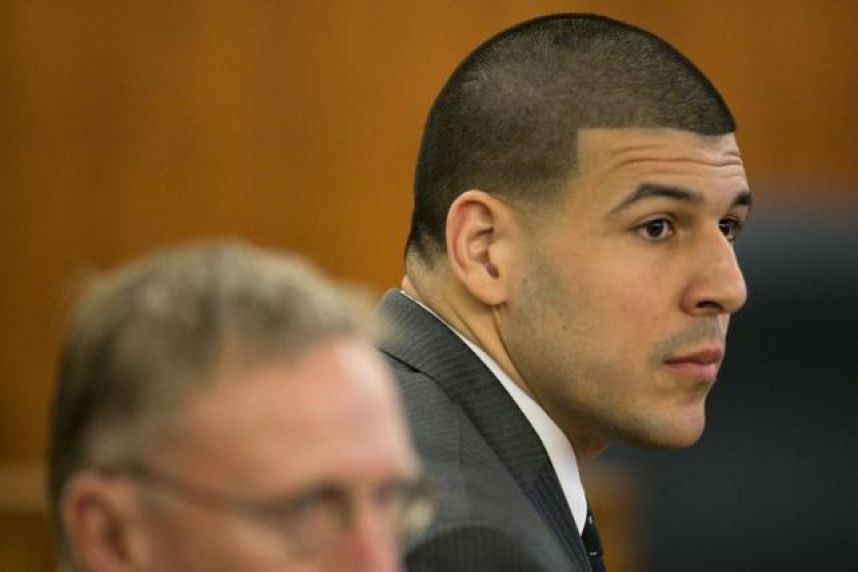Aaron Hernandez’s death in a Massachusetts prison cell Wednesday has been ruled a suicide, the Worcester County District Attorney’s Office said on Thursday.
Officials also released new details on the death, and the minutes after prison officers at the Souza-Baranowski Correctional Center discovered his lifeless body. The district attorney’s office now says that three hand-written notes were left next to a Bible in Hernandez’s cell. Officials did not divulge the contents of the notes. Previous reports have maintained that the former N.F.L. player did not leave a suicide note.
Hernandez was found hanging in his prison cell, with a bedsheet around his neck, early Wednesday morning. He was pronounced dead in a hospital a short time later. Chief Medical Examiner Dr. Henry Nields performed the autopsy on the former New England Patriots star tight end, and convicted murderer. It ruled death by suicide, caused by asphyxia by hanging, according to the district attorney’s office.
On Wednesday, shortly after the 27-year-old Hernandez’s death, his agent, Brian Murphy, said there was “absolutely no chance he took his own life.”
Officials said that there were no signs of struggle and Hernandez was determined to be alone at the time of his death.
The investigation also found cardboard jammed into the door tracks of Hernandez’s single-inmate cell, possibly to impede entry. Hernandez was locked into his cell at 8 p.m. Tuesday and a correction officer saw him hanging from the sheet at 3:03 a.m., according to a statement. The officer forced his way through the blocked door.
The medical examiner’s office released Hernandez’s body on Wednesday, officials said, but withheld some of the tissue, including his brain, until the cause and manner of death was officially determined.
Now that the report is concluded, the brain will be released to Boston University’s Chronic Traumatic Encephalopathy Center, “as Mr. Hernandez’s family wishes,” according to the DA’s office. The center studies CTE, a degenerative brain disease that has been found in N.F.L. players and other athletes who have experienced repeated trauma to the head. CTE can only be performed after a person has died.
Hernandez’s trial lawyer, Jose Baez, demanded the release of Hernandez’s brain during a Thursday press conference. Baez said that his brain could be a clue as to why the former former N.F.L. player committed suicide and could also provide information about the effect of such damaging conditions.
Our site https://t.co/zJX0ASToHD is overloaded w/requests. Here is #AaronHernandez release we just posted along w/ @worcesterda. pic.twitter.com/SUoUQFtiUk
— Mass State Police (@MassStatePolice) April 20, 2017



















